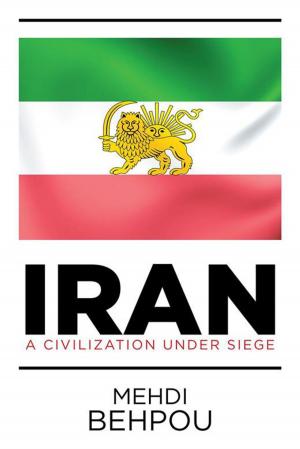| Author: | Jack Kelly | ISBN: | 9780983675013 |
| Publisher: | Jack Kelly | Publication: | May 10, 2011 |
| Imprint: | Smashwords Edition | Language: | English |
| Author: | Jack Kelly |
| ISBN: | 9780983675013 |
| Publisher: | Jack Kelly |
| Publication: | May 10, 2011 |
| Imprint: | Smashwords Edition |
| Language: | English |
This essay, the second in Jack Kelly’s series of modern treatments of Hawaiian history, frames a historic alliance that would shape the future of Hawaii – between the famed British explorer Captain George Vancouver, and King Kamehameha of the Big Island. Arriving in Kealakekua Bay 15 years after Captain Cook’s bloody death, Vancouver was intent on the mission of the British Empire, to foster order and trade. But in dismissing the Hawaiians as uneducated savages, the great navigator failed to fathom Kamehameha’s true motive – to manipulate the British into providing the arms and warships he wanted to wrest control of the Islands from competing tribal leaders. Against a backdrop of countless disruptive political and economic changes set in motion by British colonialism, Kelly takes the perspective of each of these two leaders in turn to show how Vancouver’s choice of Kamehameha as an ally was a turning point in Hawaii’s political and economic destiny.
The author relies on both original historical writings and oral histories from Hawaiian elders to bring the written record in line with truths known for generations by the people of the Islands. Kelly’s perspective as a longtime coffee farmer, journalist, photographer and cultural activist in the Kona region of Hawaii also informs these unique grassroots histories.
This essay, the second in Jack Kelly’s series of modern treatments of Hawaiian history, frames a historic alliance that would shape the future of Hawaii – between the famed British explorer Captain George Vancouver, and King Kamehameha of the Big Island. Arriving in Kealakekua Bay 15 years after Captain Cook’s bloody death, Vancouver was intent on the mission of the British Empire, to foster order and trade. But in dismissing the Hawaiians as uneducated savages, the great navigator failed to fathom Kamehameha’s true motive – to manipulate the British into providing the arms and warships he wanted to wrest control of the Islands from competing tribal leaders. Against a backdrop of countless disruptive political and economic changes set in motion by British colonialism, Kelly takes the perspective of each of these two leaders in turn to show how Vancouver’s choice of Kamehameha as an ally was a turning point in Hawaii’s political and economic destiny.
The author relies on both original historical writings and oral histories from Hawaiian elders to bring the written record in line with truths known for generations by the people of the Islands. Kelly’s perspective as a longtime coffee farmer, journalist, photographer and cultural activist in the Kona region of Hawaii also informs these unique grassroots histories.


![Cover of the book The Dynamics Of Doctrine: The Changes In German Tactical Doctrine During The First World War [Illustrated Edition] by Jack Kelly](https://www.kuoky.com/images/2015/november/300x300/9781786250193-hbLT_300x.jpg)












